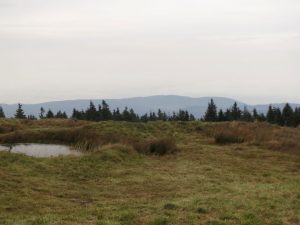While I make my money writing about tech, I have a fiction project going as well. It’s called The Magic Battery. The starting point was some questions about how magic worked in a friend’s story. Magic always has to be limited in some way, or anything becomes possible with a wave of the wand. But if there are limitations, there will be ways of overcoming them. My comment was “Whoever invents the magic battery will make a fortune!” That was my starting point.
The story is set in 16th century Saxony, and I’m striving to make it as realistic as possible except for the existence of magic. Sorcerers are tradesmen with special skills. They make a nice living because they can do things no one else can, but they aren’t super-powerful. As one of the characters puts it, “Magic isn’t magic.” It has serious limits, one of the most important being the sorcerer’s capacity to draw on the “World Behind.” But what if they could draw on this power and save it for later use? What if they could sell their stored spells to people with no magical talent? That would change the world.
Fantasy and history
Behind this premise is the Holy Roman Empire as the historians know it. Luther has come up with an equally radical invention — Protestantism — and it’s shaking up the German-speaking world. Sorcerers work under laws which religion has dictated. To practice magic, you must be Christian and male. But what does this mean when you can buy magic the way you’d buy a tool?
It’s a world of cities and towns, of houses and shops, of tradespeople and local leaders. There are no dragons, no unicorns, no elves. There’s no Dark Lord (though there is a Dark Lawyer who’s the book’s chief villain). People live in houses, not castles. Getting the details right takes serious research. The mundane details aren’t the ones historians like to write about. I need answers to questions like this:
- What was a sixteenth-century house like? How was it heated and illuminated? What was just outside?
- How did people get from one town to another? (Often they walked, over distances we’d consider incredible today.)
- What was it like to run a business? How did you hire and manage employees?

Summit of the Brocken, Germany. Photo by Gary McGath.
Discovering 16th-century Saxony
The Web isn’t very useful for answering questions like these. It has a short memory for daily life in the past. I’m finding the answers in books. Lots of books. One of the best I’ve found is Lyndal Roper’s Martin Luther: Renegade and Prophet. It’s very strong in details about life in the sixteenth century, as well as providing the historical framework I need.
I’ve just received a couple of booklets from the Society for Creative Anachronism to fill in more details. They’re part of the “Compleat Anachronist” series; the titles I got are An SCA Guide to Jewish Persona and German Peasant Clothing: 1510-1540. The SCA is about recreating life as it was in past centuries (but with better sanitation), and these booklets are heavy on what it was like to live then.
The locales in the story include ones which I’ve visited: Wernigerode, Hildesheim, and Heidelberg. They’ve changed vastly since the 16th century, but not totally. The Brocken, near Wernigerode, was the reputed gathering place of witches, and I’ve been at its summit. Heidelberg still has an ancient, highly regarded university, even though French forces destroyed its buildings in the late 17th century and it had to be rebuilt.
Creating 16th-century heroes
The story is about how people can overcome the limitations of the world they’ve grown up in. It deals with male dominance, antisemitism, and secular power by religious authorities. The characters have to stay true to their time; they can advance beyond conventional ideas, but only to a certain extent. Every character believes in God (except maybe the mysterious Dr. Brandt), and they take it for granted that men will generally play leading roles. Their ideas aren’t always mine. But the primary characters learn not to take their world for granted, and they present serious challenges to the status quo.
One of the things I love about writing the story is the juxtaposition of the fantastic with the historical. This means getting the feel of the time right. The protagonists have to overcome not curses and orc armies, but failed experiments, entrenched traditions, and dogmas. Frodo may have had it easier.